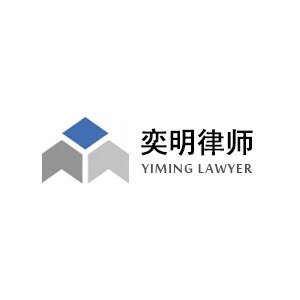Best Native People Lawyers in Beijing
Share your needs with us, get contacted by law firms.
Free. Takes 2 min.
List of the best lawyers in Beijing, China
About Native People Law in Beijing, China
The term "Native People" in the context of Beijing, China generally refers to the various ethnic minorities officially recognized by the Chinese government. Beijing, as a cosmopolitan city and the country's capital, is home to a diverse population including members of these groups. It's important to note that China's legal system operates under a civil law framework influenced by Communist legal theory and traditional Chinese legal culture. Laws pertaining to ethnic minorities are structured around the principle of ethnic unity and the provision of certain rights and protections to maintain cultural diversity and social stability.
Why You May Need a Lawyer
Legal assistance may be necessary in situations where your rights as a member of an ethnic minority in Beijing are concerned. This might include issues related to employment discrimination, land rights, cultural rights, language rights, or disputes involving implementation of ethnic policies. A lawyer with expertise in ethnic minority laws and a deep understanding of the social and political context can be crucial in navigating these complex issues.
Local Laws Overview
In Beijing, as in all of China, native people or ethnic minorities have specific rights and protections under the law. These include the right to education in their native language, preservation of their cultural heritage, and certain preferential policies in economic development. The Regional Ethnic Autonomy Law integrates these principles and grants autonomy for minority regions in cultural, educational, and economic matters. Additionally, affirmative action policies are in place to ensure minority representation in government and access to higher education.
Frequently Asked Questions
What rights do native people have in Beijing?
Native people have the right to cultural expression, education in their language, and development within the framework of the law. They also have representation in government and certain economic benefits.
Is it possible to resolve legal disputes using customary law?
China's legal system does allow for consideration of ethnic customs in court decisions, but this is subject to consistency with national laws and policies.
How are ethnic minority languages protected in Beijing?
There are measures in place to preserve and promote the use of ethnic minority languages in education and public life, in accordance with national policies.
Are there any specific employment protections for native people?
Yes, there are laws that offer protections against discrimination in employment and also affirmative action-like policies that provide advantages in certain spheres like government positions and higher education admissions.
Can native people participate in Beijing's local government?
There are provisions in the law that ensure ethnic minority representation in local governments.
What legal support is available to native people in Beijing who are facing discrimination?
Legal support can include assistance from lawyers specializing in ethnic minority law, as well as from non-government organizations and governmental legal aid.
Are there restrictions on cultural practices of native people in Beijing?
While there are protections for cultural practices, activities must comply with national laws and regulations concerning social order, security, and rights of others.
How does land rights law work for native people in Beijing?
Land rights for ethnic minorities are protected, with special consideration given to traditional land use and ownership patterns within the framework of Chinese property law.
What is the best way to resolve language barriers in legal proceedings?
Interpreters should be provided in court settings where parties or witnesses belong to an ethnic minority group and are not proficient in Mandarin Chinese.
Are there resources for native people in Beijing to learn about their legal rights?
Yes, various government publications, legal aid organizations, and cultural associations offer resources on legal rights for ethnic minorities.
Additional Resources
Those seeking legal advice on matters pertaining to native people in Beijing can refer to government agencies like the State Ethnic Affairs Commission, non-government organizations focusing on minority rights, and civil society groups dedicated to legal aid and cultural preservation. Ethnic minority cultural centers may also provide helpful information and support networks.
Next Steps
If you need legal assistance, it's advisable to find a lawyer or legal group specializing in ethnic minority law. You can contact local legal aid services or the Beijing Bar Association to get referrals to lawyers who have experience with native people's legal issues. Documenting your case clearly and collecting any pertinent evidence will be vital in receiving effective legal counsel.
Lawzana helps you find the best lawyers and law firms in Beijing through a curated and pre-screened list of qualified legal professionals. Our platform offers rankings and detailed profiles of attorneys and law firms, allowing you to compare based on practice areas, including Native People, experience, and client feedback.
Each profile includes a description of the firm's areas of practice, client reviews, team members and partners, year of establishment, spoken languages, office locations, contact information, social media presence, and any published articles or resources. Most firms on our platform speak English and are experienced in both local and international legal matters.
Get a quote from top-rated law firms in Beijing, China — quickly, securely, and without unnecessary hassle.
Disclaimer:
The information provided on this page is for general informational purposes only and does not constitute legal advice. While we strive to ensure the accuracy and relevance of the content, legal information may change over time, and interpretations of the law can vary. You should always consult with a qualified legal professional for advice specific to your situation.
We disclaim all liability for actions taken or not taken based on the content of this page. If you believe any information is incorrect or outdated, please contact us, and we will review and update it where appropriate.









